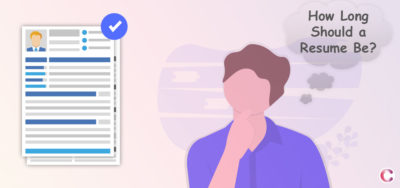College students don’t usually see career planning as an essential technique until they succeed in their senior year. However, students who spend some time every 12 months wondering about what they need to do now to prepare for their future career, or have proper career planning for the future, stays in a better position when the time comes to get interviewed by potential employers. Here, we will know the right way to make career planning for college students.
Career planning for the future is a journey, not a destination. Career Planning needs to commence long before you take the first step toward your career. College is probably a pleasant time to excavate, discover, and analyze what you want to become.
According to the College Board’s 2018 Trends in College Pricing Report, from 1988 to 2018, the average in-state tuition and fee price in the public four-year sector is about three times high in inflation-adjusted dollars. In the public two-year and private nonprofit four-year sectors, the published prices are more than twice high.
New research from the Federal Reserve Bank of New York finds that American people with a university diploma earn around $78,000 per 12 months on average, while people with an excessive college degree earn closer to $45,000 per 12 months on average.
So, this is the proper age to make some initial plans and begin working on the route of what you prefer to develop up as. It’s all right to change your idea a couple of times, but what’s fundamental is to start taking early steps in the proper path. The steering wheel of your career is in your hands and strategizing it truly can assist you to steer in the course you favor to go in.
Career Planning for College Students in the First year:
The first 12 months of college is a time of exploration. It can be a possibility for college students to rethink their plans, discover unanticipated options, and reflect on consideration of “what if…?” primarily based on the new records they’re discovering about themselves. Students who have no longer chosen an essential or who are questioning their desires can locate preparation and verify their abilities and interests at their college’s career core and through talking with their academic advisor.
First-year college students typically are instructed to meet with their instructors, however, this frequently looks uncomfortable and unfamiliar for a new student. They wonder, “What would I say?” A suitable dialog starter is to ask what type of jobs come from a major in the professor’s field, or what abilities a student can research in the fundamentals that might be beneficial in the careers the scholar is considering.
If a student is enrolled in a vocational, trade, or certification major (such as nursing, engineering, construction, or different career song majors), propose that scholars pattern the work surroundings through volunteering, job shadowing, or informational interviews.
By the end of the first year, students may see that their volunteer and other out-of-classroom activities fall into distinctive areas. That shows where their interests probably are strongest. It can be helpful at the end of the first year—and each subsequent year—for students to review their achievements both in and out of the classroom as a way to start a resume.
Additional tips for parents:
- Influence children to take introductory courses.
- Fix a home appointment with a professional counselor and take professional inventories associated with personality, interests, values, and skills.
- Involve in on-campus groups, volunteering, or internships and encourage their children.
- Arrange a tutorial advisor to speak about possibilities in the areas of study the scholar especially enjoys at college.
Career Planning for College Students in the Second year:
If students have no longer but declared a major, they will probably be anticipated to pick one via the send of their second year. For some learners, this is the year they may understand that their unique preference is no longer an accurate option–they don’t have the same interest, or they don’t have the essential skills, gaining knowledge of style, or the motivation for the most important thing they planned.
The books that students have taken at some point in their first and second years in the University will assist them to recognize the sorts of learning they most enjoy, the guides they’re nice at, and the subjects that most interest them. During the second year, students need to be talking to a tutorial advisor and a professional advisor about possible career routes and planning.
Additional tips for parents:
If your child hasn’t already chosen a major, inspire him or her to discuss it with a professional advisor on campus. Career facilities should have tools for career assessment to assist students to match their activities with potential majors and future jobs. They also can supply data on job-shadowing and mentoring, and they can supply advice on the abilities that will be needed for internships and part-time jobs. At this point, college students should make professional-style resumes or portfolios that will be needed when they begin to practice for these internships or part-time jobs associated with a professional career.
Career Planning for College Students in the Third year:
As students begin their third year on campus, they should make an appointment to talk with a career advisor about job trends related to the major they are studying. What kind of jobs are available? What are employers looking for in terms of experience and qualifications? What are the pay rates? Where are jobs located? etc.
In this phase, students are taking courses in their major and are possibly dedicated to the field, however they may additionally still want to refine their professional goals. A main can lead down very different career paths, and in some cases, the major might be mixed with a minor that will assist the student turn out to be a higher job candidate. Job-shadowing and discussions with professors can assist students’ center of attention to their goals.
International experiences have frequently proven to be an asset throughout the job search. By studying abroad, students achieve confidence, enhance their linguistic abilities, and enhance problem-solving skills. Some learning-abroad programs include internships or research factors that join immediately to a career path and it will make the student more appealing to the recruiters.
Additional tips for parents:
As students looking for internships or part-time jobs in this stage, a well-crafted resume and effective references turn out to be important. Encourage your child to update his or her resume and classify it with a professional advisor. Ask your children to assume about professors or advisors who may want to furnish references for an internship or job. If your children are thinking about graduate school, remind him or her to begin getting to know graduate or professional packages, and start to prepare for graduate-level admission tests.
Career Planning for College Students in Final year:
By the end of the senior year, students who schedule to attend graduate or expert college are taking admission exams. Most graduate programs have a fall application deadline. Students applying for graduate college will want letters of recommendation from professors, employers, or advisors.
Seniors who will be searching for a job after graduation have to check in regularly with the career center in their college, starting the fall earlier than they graduate. Career facilities normally offer workshops and recommendations on interviewing. Advisors can work with college students to modify a resume and letter of software to a unique position and most career centers sponsor job festivals and invite interviewers to campus. Students can also watch for job fairs near campus. Students are asking professors or former employers if they will serve as references and let their directions be aware of the jobs they are making use of for.
Additional tips for parents:
Parents’ can play an essential role during the job search stage by raising critical questions that the student may not be taking into account. For example,
- What advantages are offered?
- Do positive benefits make up for a decrease in salary?
- If the job is in a distinct location, what is the fee of residence in the region where the job is located, and are transferring costs covered by the company?
- Will the salary help the student’s value of living?
The key to a good career planning when you’re doing graduation is to start preparing yourself as early as possible. You need to work with Career Services to perceive your interests, develop the skills, build the connections, explore the opportunities, and enhance the professionalism to be successful in any career path.


